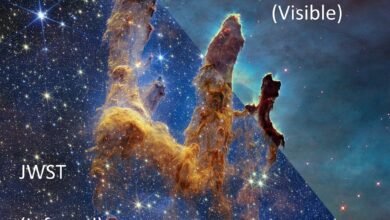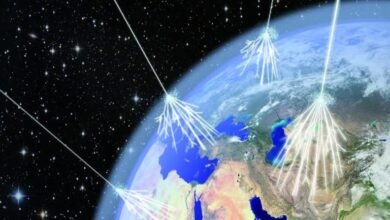Science’s great paradox: we don’t know what we don’t know until we look | by Ethan Siegel | Starts With A Bang! | Mar, 2025

Our scientific instruments are constantly improving, revealing nature’s workings as never before. Without them, we’ll remain in the dark.
Whenever we perform science at the frontiers — probing the Universe, at some level, in ways, with instruments, or at precisions that we’ve never achieved in all our prior interrogations of it — there’s an incredible puzzle that arises. On the one hand, we design and build our tools and experiments to be sensitive to things that we strongly suspect ought to be out there, but that we haven’t yet been able to confirm or refute with concrete evidence. When we built the James Webb Space Telescope (JWST), for example, we knew we were going to break many records: for most distant galaxy, for the youngest supermassive black hole, for the earliest galaxy cluster to form in the Universe, and much more.
After all, we designed it with capabilities that would render it uniquely equipped to surpass the limits of all prior observatories: from the space-based Hubble, Spitzer, and WISE telescopes to the ground-based Very Large Telescope, Keck, Subaru, Gemini, and Magellan Telescopes, and even the current world’s largest optical telescope: the Gran Telescopio Canarias. And yet, on the other hand, those very capabilities enable it to make the biggest discoveries of all: discoveries that we couldn’t have even foreseen would be there to make, as nature’s imagination frequently surpasses our own.
Here, using JWST as an example, we can see the importance of investigating the Universe in ways that fundamentally take us beyond all previous limitations. The lessons we frequently learn simply by looking humble us into realizing how ignorant we were, previously, of what we didn’t even realize we didn’t know.
Back when JWST was first being conceived, the idea was relatively simple and straightforward. We had designed, built, flown, and conducted science with space telescopes previously, and for a long time at that. After all, going to space gives you a huge advantage over astronomy conducted on the ground: you no longer have Earth’s atmosphere to contend…
Source link




